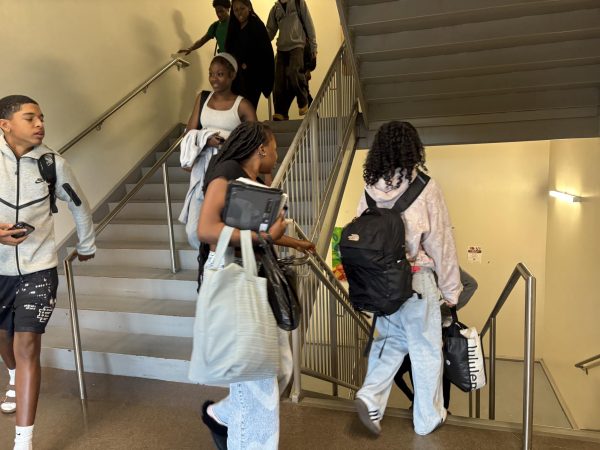Georgia Legislators Take on “Don’t Say Gay” Bill
Bill Coming Due: The state of Georgia seems on the verge of following the state of Florida in passing a bill that restricts classroom discussions about trans-genderism and other topics. Sophomore staff writers weighs in on the controversial topic.
On the night of March 8, Georgia legislators drafted a bill reflecting the Florida “Don’t Say Gay” legislation recently passed into law in that state. The Georgia version suggests restrictions for private and non-public schools regarding the discussion of race, sexuality, slavery, and oppression. The implementation of this law prevents children under high school age from learning about and acknowledging any differences between themselves and their peers.
At first read, the wording of the bill poses it as a tool to make classrooms more tolerant by reproaching discussions of differences. The lawmakers argue that these classroom discussions create segregation and go so far as to cite the Civil Rights Act to emphasize the deplorable nature of segregation in schools. However, erasing these topics are likely to have the opposite effect. “What you have to remember is middle schoolers become high schoolers,” said literature teacher Dandra McPhail, “Students are going to experience a major culture shock transitioning to high school and being exposed to so many new ideas.”
Elementary through middle school years are when students are most impressionable. By refusing children the opportunity to learn about differences, they are also being refused the opportunity to be tolerant of them. It is human nature to fear that which we do not understand, so creating a generation that does not understand differences creates hatred toward them and nurtures segregation instead of doing away with it. Eliminating this vocabulary takes away students’ capacity to understand others. “By having these conversations in schools, we are raising awareness, not fear.” said social studies teacher Caitlin Tripp.
A major purpose of the legislation revolves around barring the introduction of Critical Race Theory (CRT) into curriculum. Slavery is not allowed to be taught as a the appaling cornerstone it was in the founding of our nation, it instead is only to be recognized as brief “deviations from… the authentic founding principles of the United States.” Additionally, discussions of unconscious basis and the posture of oppressor and oppressed that our country has been built on are to be not only to be ignored, but discouraged. In doing so, politicians are denying students a right to their history, as ugly as it may be. It is imperative that the full and brutal history of our nation is kept intact for future generations to prevent its repetition. Encouraging such ignorance not only creates an opportunity for a dangerous cycle of litany to begin, it also invalidates the experiences and histories of marginalized groups in America by denying it altogether. “A part of embracing culture is talking about it and the ugliness of their histories, eliminating these discussions shelters students and detracts from their ability to accept.” said sophomore Josephine Nievera.
The second fear motivating legislators had is that these discussions will alienate students. In recent years there has been a major push for representation, allowing children to see people like them everywhere, so that they know they can be accepted and have a shot wherever they desire. By denying students discussion of their communities and circumstances at such a young age, their ability to dream is stifled. The idea that the cultures and identities with which they identify are too taboo to be discussed in schools creates dysphoria with their own identities, there should be no “age of discretion” to learn about things and people that children should be taught to love and accept. Many would argue that it is a parents job, not a teacher’s to have these important conversations, however many students spend more time in the classroom than with their own families. Teacher’s by no means must initiate these discussions but they should be allowed and fostered to encourage the free thinking of students and their ability to feel safe and accepted. “Taking away the freedom of these conversations takes away the power of one’s own identity,” said Nievera.







